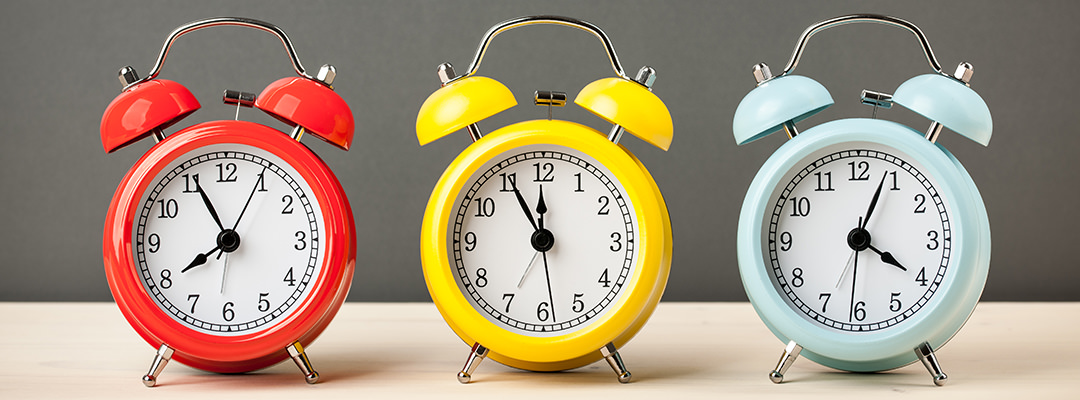According to studies, getting at least a six-hour sleep every day is good for your health. But, not everyone’s privileged to get a long night’s sleep, partly because of tight professional obligations or health issues like insomnia.
Hence, the concern lies in whether sleeping for a shorter period is good for your health? something like Health Benefits of Reclining, or has any undesirable impacts. On that account, is sleeping for shorter periods – say, three hours – good, or is it worth it after all?
How the Sleep Cycle Works
To understand the impact sleep has on people, it’s good to decipher the mechanism behind it. Sleep is divided into two main categories; rapid eye movement (REM) and non-rapid eye movement (NREM). The categories are further elaborated through four distinct stages, with the most significant portion of time given to the rapid eye movement category. They include:
Stage 1– NREM
It’s known as the light stage of sleep, lasting around five minutes. At this point, your heart and breathing rates gradually recede while your muscle activity begins to decrease.
Stage 2– NREM
This second phase of sleep lasts for about 25 to 30 minutes, and your core body temperature begins to drop. Your mind usually starts drifting into a subconscious state, but loud noises can distract you.
Stage 3 – NREM
It’s also referred to as deep sleep, and it’s here where you drift into this phase after about 40 minutes. In this stage, strengthening of the immune system occurs amid major muscle and general body repairs. Loud noises don’t distract your sleep during this phase.
Stage 4 – REM
This stage usually takes the most significant part of your sleep time, beginning after 90 minutes of falling asleep. During this stage, you start dreaming, and your eyes move quickly. Sleep paralysis typically happens during this stage.
From this structural recitation, it’s evident that a three-hour sleep falls short of the time frame covering the four stages. Nonetheless, sleeping timespans vary in people, and they can be naturally shorter in others.
In most cases, these people usually get high-quality sleep such that their mind and body rejuvenate in fewer hours than the rest. These people typically have a sleep condition called the Short Sleeper Syndrome.
Dangers of Sleeping for 3 Hours
Medical practitioners approach situations of less as sleep disproportion from normality. Conventionally, they buy into the argument that less sleep causes more harm than good and that nobody should sleep partially.
Several studies recommend a person rest for at least eight hours a day, or if the call is tough, a minimum of six hours. They believe that sleeping only for a short time – like three hours or less – predisposes you to dangers like:
1. Shortened Thinking Capacity
Deprived sleep can lead to significant cognitive issues in your brain. When you sleep for three hours a day, your brain fails to rejuvenate correctly, and you become sleepier. Sleepiness downturns your thought process, and you become incapable of making quick, decisive thinking. You will find it hard to engage in technical situations that require sharp-witted reactions.
2. Diminished Libido
The connection between sex and sleep is perpetual. Technically, when you sleep for three hours a day, your brain impedes sex hormone synthesis, including testosterone and estrogen. Instead, it counter-produces more cortisol, which lowers your sex drive. Although other factors such as stress and depression influence cortisol production profoundly, lack of sleep also plays a synergistic role.
3. You Become Forgetful
In addition to impairing your thinking prowess, lack of sleep can be detrimental to your memory retention capacity. According to psychology, learning occurs chronologically, and sleep is part of the process. 60% of learning, for the most part, doesn’t happen instantly. Information sticks in the subconscious mind before it’s stored in the conscious brain later. It’s here that sleep comes in handy, enabling the transfer of data to the permanent conscious brain.
4. You Risk Accidents
Sleeping for three hours alone means that you will be staying active for the better part of the day. During that time, you will become physically and mentally exhausted, and a call for rest through good sleep would prove helpful.
Conversely, if you don’t get sufficient sleep, your body and brain will go into a shutdown mode. You will obliviously drift into slumber when doing high-risk activities like driving on busy roads or operating technical electronic gadgets. Consequently, you are likely to get involved in grisly accidents that threaten your life.
5. You Gain Weight
Epidemiological studies attest to the potential contribution of deprived sleep on obesity. Empirical evidence suggests that sleeping for fewer hours triggers hunger which consequently increases calorie intake. Poor sleep hampers leptin production and alternatively heightens ghrelin levels, leading to increased appetite and hunger. Multiplied calorie intake puts you at the risk of gaining more weight.
Benefits of Sleeping for Three Hours
You Get More Time to Do Other Stuff
One advantage of sleeping for three hours is harnessing the day and fit in everything scheduled for the next day. You can extrapolate activities or compensate for the time lost during the day. Most learners find it conventional to tear into the wee hours of the night because this is usually the time when calmness prevails.
You Get Enough Time in Quietude
If you are looking at finding your solace, sleeping for three hours gives you the luxury of time. You will be able to sleep for a short time and have all the moments to be alone while being awake. While this may seem to be less of a benefit, it’s more of a big deal for people with introverted personalities.
Higher Quality Sleep – Without Disruptions
When you sleep for three hours, your brain accumulates more sleep which takes you by storm during your few sleeping hours. People with insomnia can benefit from this trick, where the concept of compensation covers the gaps in their sleeping needs. High-quality sleep means that you sleep deeply and continually without disruptions.
Tips to Prepare for a 3-hour Sleep
If you limit your sleeping time to three hours, your mind needs to master all the techniques to make it more profound and more satisfactory. Sleeping for less time requires you to avoid sleep inhibitors that will make it bumpy. Here are workable tips to prepare for a three-hour sleep.
1. Avoid Coffee and Caffeine Products
Coffee and tea usually contain caffeine which cuts down your chances of falling deeply asleep. If possible, time your coffee dates or tea breaks six hours from your sleeping time to not affect you.
2. Meditate
Meditation is good at relaxing your nerves and cool off the day’s steam. Before going to bed to sleep for a short time, dim the lights and create a ‘sleepy’ atmosphere. Afterward, meditate a bit before sleeping.
3. Take the Right Food
A variety of foods can help you sleep better and in shorter periods. Consume a lot of almonds, fatty fish, walnuts, warm milk, and chamomile tea.
4. Listen to Your Body
Train your body to sleep when tired. Give yourself sufficient time to cool down before you put the lights out. Allow the fatigue in your body to drive you to sleep, but don’t force it to.
Sleeping for three hours has its shortcomings but can be worth it if you know how to channel it to your benefit. Maneuvering the sleeping needs is tricky because the body is synchronized to sleep every night. However, if you manage to sleep for a short period, make it deep and satisfactory to compensate for the sacrificed hours.
Did you like it?4.5/5 (25)





